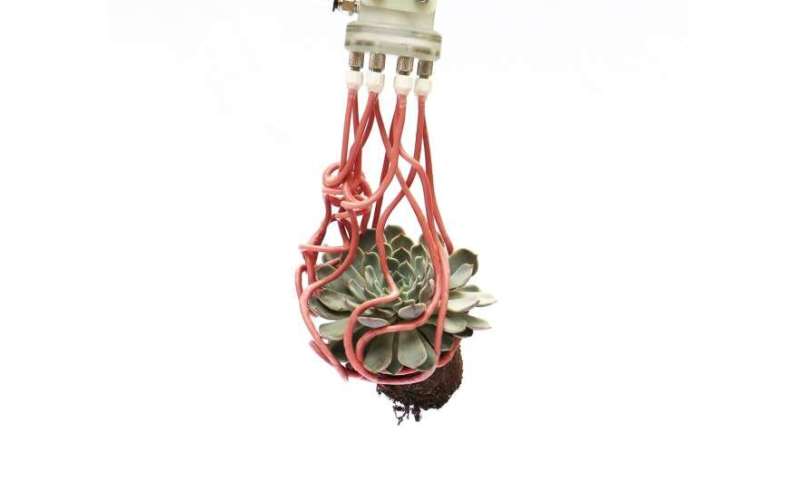Best of Last Week—A hitch found in proton structure, a tentacled robot, a new way to prevent liver cancer

It was a good week for physics research as a team at the University of Colorado combined two features of quantum mechanics to demonstrate entanglement between atoms and the delocalization of atoms using an entangled matter-wave interferometer. Also, a team affiliated with multiple institutions in the U.S. and two in Canada has confirmed a hitch in the structure of the proton. Working at the U.S. Department of Energy's Thomas Jefferson National Accelerator Facility, they found what they described as a "bump" in the data. And a team at Trinity College Dublin found evidence that the human brain uses quantum computation for both cognitive and conscious brain functions.
In technology news, a team of researchers at Peking University in China, working with two colleagues at the University of Texas at Austin, successfully integrated a sub-0.5nm dielectric with 2D semiconductors as part of their work in improving field-effect transistors. And a team at the Harvard John A. Paulson School of Engineering and Applied Sciences designed and built a tentacled robot that can gently grasp fragile objects. Also, a combined team from Tencent Technology (Shenzhen) Co. Ltd., and City University of Hong Kong built a high-resolution, wearable electrotactile rendering device that is capable of virtualizing the sense of touch by the human hand. And a team at the College of Engineering in Pune, India, found that many machine-learning-based systems designed to detect malware are susceptible to adversarial attacks that generate data meant to misclassify findings.
In other news, a team of researchers affiliated with multiple institutions in the U.S. and one in Canada found that a new islet transplant method leads to insulin independence in approximately half of the type 1 diabetes patients tested in a phase 3 clinical trial. Also, a team of researchers from several institutions in Germany working with a colleague from Brazil, discovered a mechanism that could cause the collapse of the great Atlantic circulation system that is related to climate change. And finally, a team of researchers at the Columbia University Irving Medical Center found what they believe may be a new way to prevent liver cancer that involves interfering with stellate cell activation.
© 2022 Science X Network